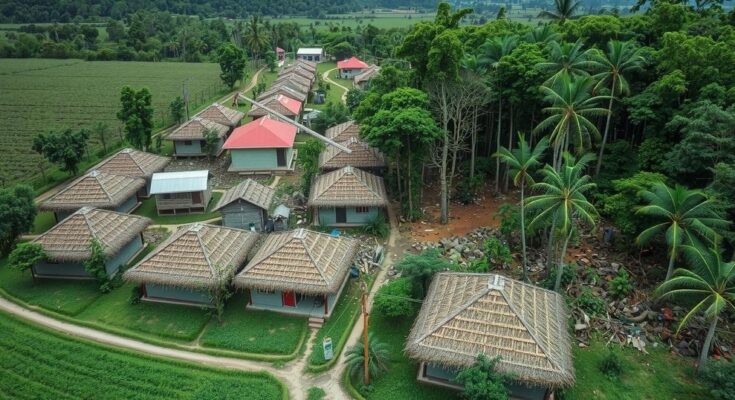Deforestation around Mennonite colonies in the Peruvian Amazon has surged, reaching over 8,660 hectares by 2024. Ongoing satellite data confirms the trend amid concerns over illegal land acquisition and environmental impact. Experts stress the need for government action to curb this deforestation and protect indigenous territories.
Recent satellite data verifies that deforestation in the Peruvian Amazon continues unabated around Mennonite colonies, which are conservative Christian communities known for extensive agricultural practices. Since their establishment in Peru’s rainforests around 2017, Mennonite activities have led to a dramatic increase in deforestation, with over 8,660 hectares (21,400 acres) lost by 2024.
The Monitoring of the Andean Amazon Project (MAAP) reported this concerning trend, underscoring that all five existing Mennonite colonies—Chipiar, Vanderland, Osterreich, Providencia, and Masisea—are contributing to ongoing environmental degradation. For instance, deforestation around Chipiar has reached 2,708 hectares (6,692 acres) since 2020. Images from Global Forest Watch (GFW) reveal significant clearing and fire alerts in the region, indicating land being prepared for agricultural use.
Matt Finer, a senior research specialist at MAAP, warned that unless the Peruvian government adopts more effective regulatory measures, the Mennonite population will likely continue its expansion, exacerbating deforestation. Finer emphasized the importance of distinguishing between deforestation and fire damage, highlighting recent imagery that suggests uncontrolled fires may be further devastating the landscape.
Mennonites, whose origins date back to 16th-century Europe, have historically been associated with large-scale industrial agriculture. Since their migration to Latin America, they have established colonies in search of agricultural land. However, these activities have raised concerns regarding illegal land acquisition and overlaps with Indigenous territories. The presence of Mennonite colonies in the Peruvian Amazon has resulted in significant environmental impact, as communities seek to convert forested areas into farmland. MAAP’s ongoing monitoring of these colonies reveals alarming rates of deforestation, leading to concerns from environmental experts and indigenous rights advocates alike.
In summary, the expansion of Mennonite colonies in the Peruvian Amazon has resulted in substantial deforestation, with signals indicating that this trend will continue without governmental intervention. The situation is compounded by fires indicative of uncontrolled land-clearing practices, and the potential illegality of land acquisition raises ethical concerns. Urgent action is required to mitigate environmental damage and respect the rights of local Indigenous populations.
Original Source: news.mongabay.com




